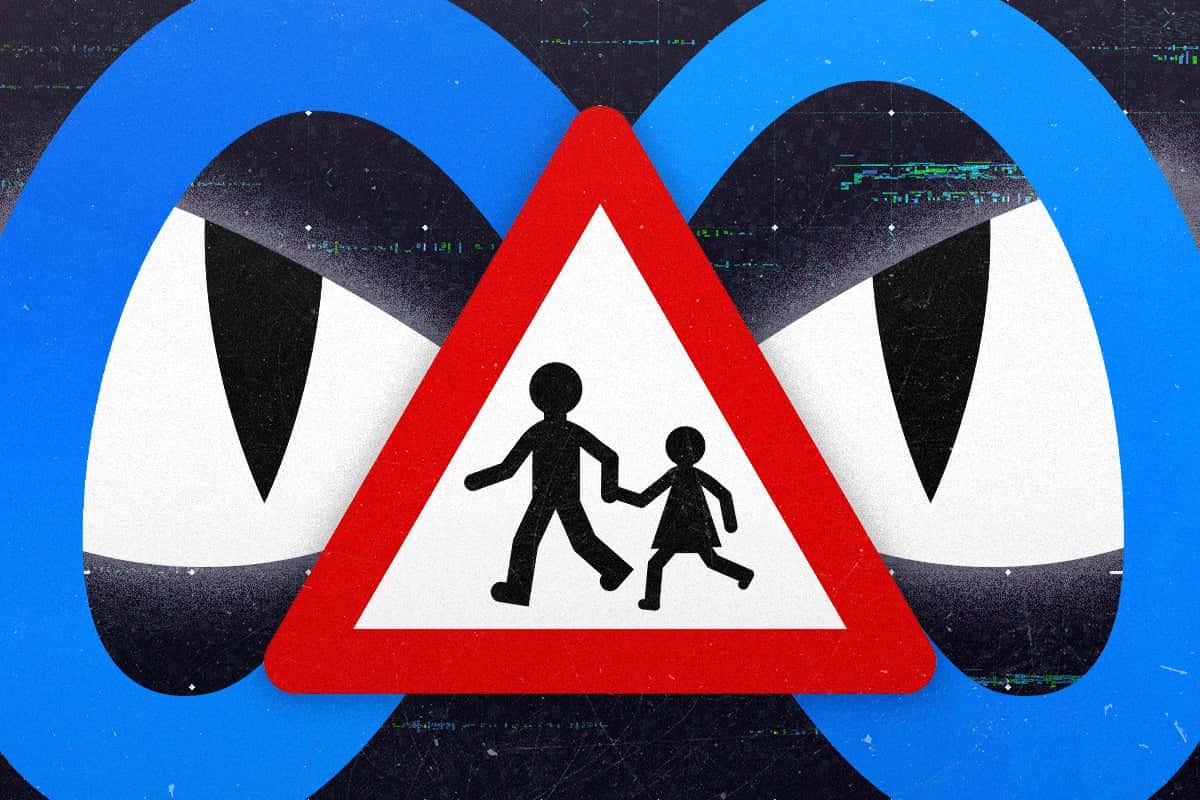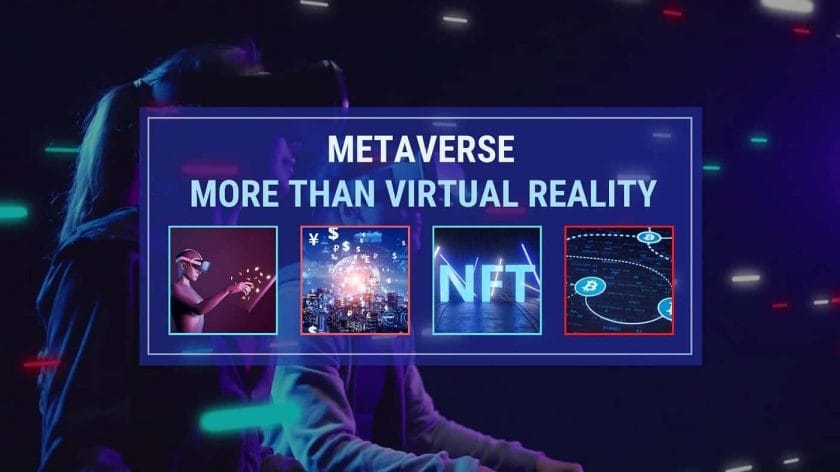The metaverse is a virtual world that has taken the tech industry by storm. With its limitless potential, people are eager to explore and experience what it has to offer. From socializing with friends in a virtual space to creating new business opportunities, the metaverse offers endless possibilities that are driving its popularity. But why would anyone want the metaverse? Let’s find out.
What is the metaverse?
As an AI expert working at Prometheuz, I have been fascinated by the concept of the metaverse, which refers to a collective virtual shared space that is created by the convergence of physical and virtual reality. The metaverse is essentially a fully immersive digital world that allows users to interact with each other and digital objects in real-time. It is often described as a successor to the internet, where instead of browsing websites and reading content, users can enter a fully-realized 3D environment.
The concept of the metaverse has been around for decades, but recent advancements in technology have made it more feasible than ever before. With the rise of virtual and augmented reality technologies, developers are now able to create highly immersive experiences that blur the lines between physical and virtual reality. In addition, blockchain technology has made it possible to create decentralized marketplaces within these virtual worlds, allowing users to buy and sell digital assets using cryptocurrency.
How does the metaverse differ from virtual reality?
While both concepts involve creating immersive digital environments, there are some key differences between virtual reality (VR) and the metaverse. VR typically refers to a single-user experience where an individual wears a headset or other device that transports them into a completely digital environment. In contrast, the metaverse is designed as a shared space where multiple users can interact with each other and digital objects in real-time.
Another difference between VR and the metaverse is that while VR experiences are typically standalone applications or games, the metaverse is designed as an interconnected network of virtual worlds. Users can move seamlessly between different environments within the metaverse without having to exit one application and open another.
Why has there been a recent surge in interest in the metaverse?
In recent years, there has been a surge of interest in the potential of the metaverse due to several factors. One of the main drivers has been the rise of virtual and augmented reality technologies, which have made it possible to create highly immersive digital environments that are more realistic than ever before.
In addition, there has been a growing interest in blockchain technology and its potential to create decentralized marketplaces within virtual worlds. This has led to the development of non-fungible tokens (NFTs), which are unique digital assets that can be bought and sold using cryptocurrency. NFTs have become increasingly popular in recent months, with some selling for millions of dollars at auction.
Finally, the COVID-19 pandemic has accelerated interest in the metaverse as people look for new ways to connect with each other while social distancing. With many traditional social activities off-limits due to public health concerns, virtual worlds offer a way for people to interact with each other in a safe and socially-distanced manner.
What are some potential uses for the metaverse?
The potential uses for the metaverse are virtually limitless. Here are just a few examples:
Socializing:
One of the most obvious uses for the metaverse is as a platform for socializing and connecting with others. Virtual worlds offer a way for people to meet up and interact with each other in real-time, regardless of physical location.
Gaming:
Virtual worlds are also well-suited for gaming experiences. Developers can create highly immersive games that take advantage of the metaverse’s 3D environment and real-time interaction capabilities.
E-commerce:
The metaverse could also serve as a platform for e-commerce, allowing users to buy and sell digital goods using cryptocurrency or other forms of payment.
Education:
Virtual worlds could be used as a platform for education, offering students an immersive learning experience that goes beyond traditional textbooks and lectures.
How might the metaverse impact social interactions and relationships?
The metaverse has the potential to significantly impact social interactions and relationships. On one hand, it could offer a new way for people to connect with each other in real-time, regardless of physical location. This could be particularly beneficial for people who are geographically isolated or have difficulty leaving their homes.
On the other hand, there is also a concern that the metaverse could lead to increased isolation and disconnection from the physical world. Some experts worry that people may become so immersed in virtual worlds that they neglect their real-world relationships and responsibilities.
Ultimately, the impact of the metaverse on social interactions and relationships will depend on how it is used and integrated into our daily lives.
Are there any ethical concerns associated with the development of the metaverse?
As with any emerging technology, there are ethical concerns associated with the development of the metaverse. One concern is that virtual worlds could be used as a platform for illegal activities such as money laundering or drug trafficking.
Another concern is privacy. As users spend more time in virtual environments, they may be sharing more personal information than ever before. There is a risk that this data could be compromised or misused by malicious actors.
Finally, there is a concern that the metaverse could exacerbate existing inequalities. If access to virtual worlds is limited to those who can afford high-end VR equipment or expensive digital assets, it could create a new form of digital divide between those who have access to these resources and those who do not.
How might businesses benefit from utilizing the metaverse?
Businesses could potentially benefit from utilizing the metaverse in several ways:
Marketing:
Virtual worlds offer a new platform for marketing products and services. Companies can create immersive experiences that allow customers to interact with their products in ways that were previously impossible.
E-commerce:
The metaverse could also serve as a platform for e-commerce, allowing companies to sell digital goods and services directly to customers.
Collaboration:
Virtual worlds could be used as a platform for collaboration, allowing employees to work together in real-time regardless of physical location.
What role will technology companies play in shaping the future of the metaverse?
Technology companies are likely to play a significant role in shaping the future of the metaverse. Companies like Facebook and Google are already investing heavily in virtual and augmented reality technologies, which are key components of the metaverse.
In addition, blockchain technology is likely to play an important role in the development of decentralized marketplaces within virtual worlds. Companies that specialize in blockchain technology may be well-positioned to take advantage of this trend.
Finally, gaming companies are also likely to be major players in the development of the metaverse. Many popular games already have large and dedicated communities that could potentially transition into virtual worlds.
Could the metaverse be used to address social and environmental issues, such as climate change or inequality?
The metaverse has the potential to be used as a tool for addressing social and environmental issues. For example, virtual worlds could be used to raise awareness about climate change or other global issues through immersive experiences.
In addition, the metaverse could potentially offer new solutions for addressing inequality. For example, it could be used as a platform for providing education or job training to people who might not have access to these resources otherwise.
However, it’s important to note that while the metaverse may offer new opportunities for addressing these issues, it is not a silver bullet solution. Real-world action is still necessary in order to create lasting change.
What challenges must be overcome in order to fully realize the potential of the metaverse?
There are several challenges that must be overcome in order to fully realize the potential of the metaverse. These include:
Technical challenges:
Creating a fully-realized metaverse will require significant advancements in technology, particularly in the areas of virtual and augmented reality.
Interoperability:
In order for the metaverse to reach its full potential, different virtual worlds will need to be able to interact with each other seamlessly. This will require standardization and interoperability between different platforms.
Privacy and security:
As mentioned earlier, privacy and security are major concerns associated with the development of the metaverse. In order for users to feel safe and secure in these virtual environments, robust privacy and security measures will need to be put in place.
Could the development of the metaverse contribute to a more connected global community?
The development of the metaverse has the potential to contribute to a more connected global community by allowing people from all over the world to connect and interact with each other in real-time. This could potentially lead to increased understanding between different cultures and communities.
However, it’s important to note that simply connecting people through virtual worlds is not enough on its own. Real-world action is still necessary in order to address issues such as inequality or climate change.
How might education and learning be impacted by advancements in the metaverse?
Advancements in the metaverse could have a significant impact on education and learning. Virtual worlds offer a new platform for immersive learning experiences that go beyond traditional textbooks and lectures.
For example, students could use virtual environments to explore historical events or scientific concepts in ways that would be impossible otherwise. They could also collaborate with other students from around the world on projects or assignments.
However, it’s important to note that virtual environments should not replace real-world experiences entirely. Hands-on experience is still necessary in order to fully understand and apply concepts learned in virtual environments.
Are there any risks associated with investing in companies that are developing technologies related to the metaverse?
As with any investment, there are risks associated with investing in companies that are developing technologies related to the metaverse. One risk is that the technology may not develop as quickly or as successfully as anticipated, leading to lower returns on investment.
Another risk is regulatory uncertainty. As virtual worlds become more prevalent, it’s possible that governments may introduce new regulations or restrictions that could impact the profitability of these companies.
Finally, there is always a risk of fraud or mismanagement within individual companies. It’s important for investors to do their due diligence and thoroughly research any company before investing.
Will access to the metaverse be limited to those who can afford it, or will it be accessible to everyone regardless of socioeconomic status?
There is a concern that access to the metaverse could be limited to those who can afford high-end VR equipment or expensive digital assets. This could create a new form of digital divide between those who have access to these resources and those who do not.
However, there are also efforts underway to make virtual worlds more accessible. For example, some developers are working on ways to create immersive experiences using standard web browsers rather than requiring specialized hardware.
Ultimately, whether access to the metaverse will be limited or universal will depend on how it is developed and implemented. It’s important for developers and policymakers to prioritize accessibility and work towards creating an inclusive environment for all users.
What steps can individuals and organizations take to ensure that their use of the metaverse aligns with their values and goals?
Individuals and organizations can take several steps to ensure that their use of the metaverse aligns with their values and goals:
Ethical considerations:
Before engaging with virtual worlds, it’s important to consider the ethical implications of your actions. This includes issues such as privacy, security, and potential harm to others.
Research:
Before investing in any metaverse-related technology or platform, it’s important to thoroughly research the company and its practices. Look for companies that prioritize transparency and user privacy.
Community engagement:
Virtual worlds are built on communities. It’s important to engage with other users and work together to create a positive and inclusive environment.
Advocacy:
If you feel strongly about certain issues related to the metaverse, such as accessibility or environmental impact, consider becoming an advocate for change within the community. Use your voice to push for policies and practices that align with your values.
In conclusion, the metaverse offers endless possibilities for entertainment, education, and social interaction. It’s a world where you can be whoever you want to be and do whatever you want to do. So, why wouldn’t anyone want to experience it? If you’re interested in exploring the potential of the metaverse further, don’t hesitate to get in touch with us and check out our AI services. We’d love to help you discover this exciting new world!

N/A
N/A
N/A
N/A

N/A
N/A
N/A
N/A
N/A
N/A
N/A
N/A










